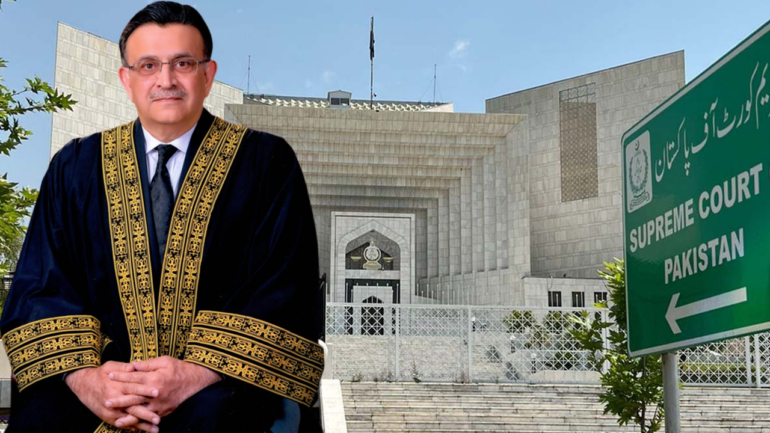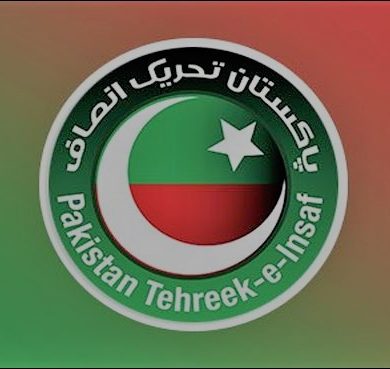In a significant 2-1 majority decision, the Supreme Court of Pakistan on Friday nullified certain amendments introduced to the National Accountability Ordinance (NAO), 1999, during the previous Pakistan Democratic Movement (PDM)-led government’s tenure.
The three-member bench, presided over by Chief Justice of Pakistan (CJP) Bandial and consisting of Justice Mansoor Ali Shah and Justice Ijazul Ahsan, conducted more than 50 hearings on a petition filed by Pakistan Tehreek-e-Insaf (PTI) Chairman Imran Khan against these amendments.
The judgment had been reserved following hearings on September 5.
CJP Bandial, whose last day as the apex court’s top judge was set for September 17 (Sunday), had promised a “short and sweet verdict.”
In its majority verdict, the Supreme Court reinstated corruption cases against public officeholders that had been closed following the amendments to the NAO. Additionally, it declared some of these amendments void.
The court directed the National Accountability Bureau (NAB) to return all case-related records to relevant courts within seven days. Notably, the majority decision found the petition against the NAB amendments admissible, reinstating all closed inquiries filed with the anti-graft body.
However, Justice Shah issued a dissenting note in the NAB amendments case.
The striking down of the amendments implies that references against prominent political figures in the country will once again be heard in accountability courts. These figures include Nawaz Sharif, Asif Ali Zardari and Yousuf Raza Gilani in the Toshakhana reference, Shahid Khaqan Abbasi in the LNG reference, and Raja Pervez Ashraf in the rental power reference, among others.
The amendments had not only reduced the NAB chairman and prosecutor general’s terms but also excluded all regulatory bodies from NAB’s jurisdiction. Furthermore, the changes mandated a three-year term for judges of accountability courts and a one-year deadline for case decisions.
Imran Khan had challenged these amendments, asserting their unconstitutionality.
The petition contended that amendments to various sections of the NAB law were in violation of the Constitution, as well as fundamental rights outlined in Article 9, 14, 19, 24, and 25.
Khan requested that all these amendments to the NAB law be declared null and void.



